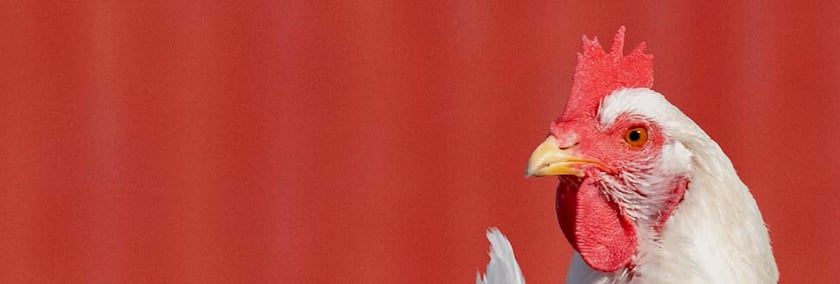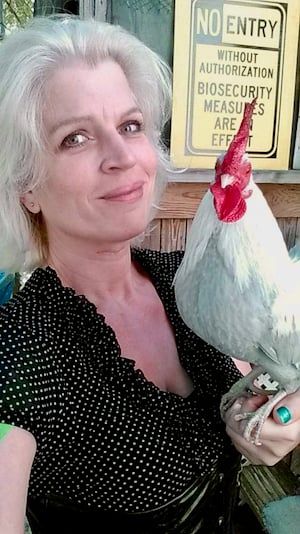How Chicken-Keeping Saved My Life


Most don’t often think of chickens promoting good health—except for their eggs, maybe—but that’s what has happened to me. Chicken-keeping has benefited my life in ways I never thought about when I first began caring for a flock nearly 10 years ago.
I didn’t set out to become a chicken-keeper on purpose. Rather, it just happened after I was stung by a bee was gifted six bantam chickens for pest control purposes. Right away I built my coop, enjoyed my first eggs from the backyard, and learned there was more to the relationship with my chickens.
Along the way I became the passionate chicken keeper. I bonded with my birds. I learned their secret language of predator alert vocalizations, their pecking order body language, and especially the noisy morning shrills of “Hurry up, we’re hungry!”
Once chickens figure out they can communicate with you and you can fulfill their demands, they will display their own code of affection towards you just like any pet cat or dog would.
Yes, some chickens will sit in your lap and let you pet them just like a cat or dog. It’s scientifically proven that owning pets, like cats and dogs, benefit people’s health by helping them manage anxiety and stress and lowering heart rate and blood pressure. They provide unconditional social support, and the increase in physical activity helps a person stay in shape.
There’s something special about chickens that causes humans to relate directly to them. An organization in the U.K. called HenPower (equalarts.org.uk) places chickens in care centers. This helps to engage older persons in arts activities and hen-keeping to promote health and wellbeing.
They found that keeping hens reduces loneliness and depression, as well as reduces use of anti-psychotic medicines in dementia patients.
Said one “hensioner” (hen-keeping pensioner): “At 87, hens are the biggest things in our lives.”
But what about health?
Caring for chickens has benefited me by helping me manage anxiety and chronic pain. They give me purpose to get up and get moving every morning, and if I pace myself correctly I only use one-quarter the amount pain management medications prescribed to me—Syringomyelia and Thoracic Outlet Syndrome can be painful.
Chickens helped ease my anxiety when I received news of the neurological damage in my spinal cord. Rather than be devastated and quit, in my passion for plumage I reflected; just because I ended up with metal plates and screws in my spine doesn’t mean I can’t move a 50-pound bag of feed. (I just don’t carry it on my shoulders and use a little red wagon instead.)
My physicians have taken note of the positive therapeutic effects chickens have in my life. One of them even said to me, “You are very fortunate to have them, and especially now during this difficult time during this COVID-19 transition. You have something to tend to daily, whereas many people don’t and are stuck in isolation sitting on the couch.”
In my response to them, I spoke about how I learned about bio-security in reference to the 2014-15 bird flu outbreak that killed a approximately 50 million chickens and turkeys in the U.S., and yearly Salmonella outbreaks across the nation because of the purchase of spring baby chicks.
They were impressed with my knowledge.
A pandemic benefit
I explained how bio-security measures such as hand washing, masks, keeping different shoes for coop use and going to town use are critically important not just for the chickens’ health but for your own health as well.

Forming those habits years ago made social distancing and hand washing second nature to me. Those tasks are habits I already have, so I have zero anxiety about doing it! Again…thanks, chickens!
Chickens have taught me what it means to be mindful of my environment, trust my gut feeling, and that it’s okay to have a bad day when something doesn’t work out, and to try a different way another day.
Living in Florida, I also learned from chickens a Hurricane Michael devastated the area a few years ago: always keep your nest (and survival supplies) built up.
Tags:Chicken Chatter

Acreage Life is part of the Catalyst Communications Network publication family.















